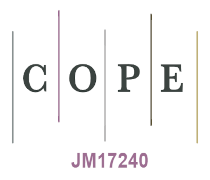The Work Design Questionnaire – developing Polish version of a measure for assessing job characteristics and work environment. Preliminary results
DOI:
https://doi.org/10.18778/1427-969X.18.07Keywords:
job design, work design, job characteristics, work characteristics, work conditions, work environment, job satisfactionAbstract
The aim of this study was to develop a Polish version of a measure for assessing job characteristics and work environment. The idea was based on Work Design Questionnaire by Morgeson and Humphrey, which allows to assess 21 characteristics of a job. 174 employed people have been surveyed (113 W, 67 M), aged from 19 to 60 years (M = 35.50, SD = 11.20), representing different professions and positions, as well as different work experience (minimum 1 year, maximum 45 years; M = 13.81). In order to develop the questionnaire, a number of analyses was conducted: generating the preliminary list of items, analyzing the structure of answers given by the subjects, exploratory factor analysis, assessment of properties of the selected items and the reliability of the scales. As a result, a measure consisting of 46 items (which belong to 11 factors) was obtained. The Polish version of the Work Design Questionnaire has satisfactory reliability (Cronbach’s α ranging from 0.60 for the scale of “Meaning of Work” to 0.92 for the scale “Job complexity”, for the whole scale: 0.87), but its usefulness for scientific purposes should be verifi ed. It is therefore planned to continue efforts to develop the final version of the questionnaire, such as: an analysis of construct validity (including confirmatory factor analysis) and external validity, taking into account the variable of social approval etc.References
Bedyńska S., Brzezicka A. (2007). Statystyczny Drogowskaz. Praktyczny poradnik analizy danych w naukach społecznych na przykładach z psychologii. Warszawa: Wydawnictwo SWPS Academica.
Google Scholar
Biela A., Kamiński L., Manek A., Pietraszkiewicz H., Sienkiewicz Z., Szumielewicz J. (1992). Kwestionariusz Lubelski. Analiza Stanowiska Pracy. Założenia teoretyczne, metodologia konstrukcji oraz metodyka badań kwestionariuszem. Lublin: Redakcja Wydawnictw Katolickiego Uniwersytetu Lubelskiego.
Google Scholar
Campion M. A., Thayer P. W. (1985). Development and field evaluation of an interdisciplinary measure of job design. Journal of Applied Psychology, 70 (1), 29–43.
Google Scholar
DOI: https://doi.org/10.1037/0021-9010.70.1.29
Edwards J. R., Brtek M. D., Scully J. A. (2000). The Nature and outcomes of work: A replication and extension of interdisciplinary work – design research. Journal of Applied Psychology, 85 (6), 860–868.
Google Scholar
DOI: https://doi.org/10.1037/0021-9010.85.6.860
Franaszczuk I. (1971). Analiza pracy. [W:] J. Okoń (red.), Psychologia przemysłowa (s. 158–195). Warszawa. Polskie Wydawnictwo Naukowe.
Google Scholar
Hackman R. J., Oldham G. R. (1975). Development of the Job Diagnostic Survey. Journal of Applied Psychology, 60 (2), 159–170.
Google Scholar
DOI: https://doi.org/10.1037/h0076546
Hackman R. J., Oldham G. R (1980). Work Redesign. Reading, MA: Addison-Wesley.
Google Scholar
Hauk M. (2010). Ewolucja form pracy, zmiany na rynku pracy a zadania psychologów. Acta Universitatis Lodziensis. Folia Psychologica, 14, 82–96.
Google Scholar
Hauk M. (2012a). Koncepcja JCM Hackmana i Oldhama – badania weryfikacyjne i analiza modelu pod kątem jego aktualności oraz możliwości wykorzystania w praktyce zarządzania zasobami ludzkimi. Zarządzanie Zasobami Ludzkimi, 3–4, 32–37.
Google Scholar
Hauk M. (2012b). Koncepcja JCM Hackmana i Oldhama a zadowolenie telepracowników. Edukacja Ekonomistów i Menedżerów. Problemy. Innowacje. Projekty, 2 (24), 135–153.
Google Scholar
DOI: https://doi.org/10.5604/01.3001.0009.5847
Król G., Wieczorkowska G. (2004). Budowanie wskaźników za pomocą analizy czynnikowej. [W:] J. Brzeziński (red.), Metodologia badań psychologicznych. Wybór tekstów (s. 391–416). Warszawa: Wydawnictwo Naukowe PWN.
Google Scholar
Lees C. D., Cordery J. L. (2007). Analiza i projektowanie pracy. [W:] N. Chmiel (red.), Psychologia pracy i organizacji (s. 53–80). Gdańsk: Gdańskie Wydawnictwo Psychologiczne.
Google Scholar
Morgeson F. P., Hupmhrey S. E. (2006). The Work Design Questionnaire (WDQ): Developing and validating a comprehensive measure for assessing job design and the nature of work. Journal of Applied Psychology, 91 (6), 1321–1339.
Google Scholar
DOI: https://doi.org/10.1037/0021-9010.91.6.1321
Paszkowska-Rogacz A. (2011). Młodzieżowy Kwestionariusz Zainteresowań Zawodowych. Podręcznik. Warszawa: Fundacja Realizacji Programów Społecznych.
Google Scholar
Downloads
Published
How to Cite
Issue
Section
License

This work is licensed under a Creative Commons Attribution-NonCommercial-NoDerivatives 4.0 International License.









